Auburn Avenue Itinerary
Tour Famous Black History Sites and Landmarks
Throughout the world, everyone knows two of Atlanta’s streets: Auburn Avenue and Peachtree Street (and the 71 Peachtree variations). Auburn Avenue, located in the neighborhood fondly called Sweet Auburn, is world famous for its place as the heart of black enterprise and the civil rights movement. In 1956, Fortune Magazine called it “the richest Negro street in the world.” Dr. Martin Luther King Jr. was born on the street and he preached on the street. Coretta Scott King established The King Center on the street. The MLK Jr. Day Parade is celebrated on the street. Both MLK Jr. and Coretta Scott King are interred on Auburn Avenue.
Take a walk down Auburn Avenue where you will discover just how much of our history is packed into this famous thoroughfare.
1. APEX MUSEUM
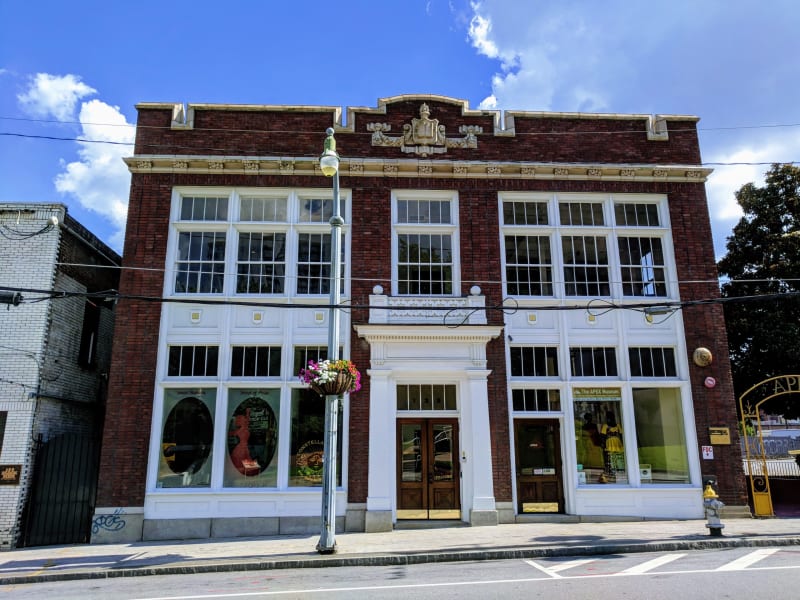
A good place to start is at the APEX Museum, which gives a view of history from an African- American perspective. There is a focus on the origins and introduction of the slave trade. Exhibits explore the contributions of blacks throughout American history with displays such as “Africa the Untold Story” and “Sweet Auburn Street Pride.” Look for a replica of Yates and Milton Drug Store, one of the city’s first African-American owned businesses.
Where: 135 Auburn Ave. NE
2. AUBURN AVENUE RESEARCH LIBRARY
Need a little more perspective before venturing out? Visit the Auburn Avenue Research Library on African-American Culture and History, the Southeast’s first public library to offer specialized reference and archival collections dedicated to the study or African-American culture and history. The museum’s vast collection covers everything from the Roots of Rap to African-American comic books.
Where: 101 Auburn Ave. NE
3. MARTIN LUTHER KING, JR. NATIONAL HISTORICAL PARK
The highlight of Auburn Avenue is the Martin Luther King, Jr. National Historical Park, which includes several sites. The Visitor Center holds the original farm wagon that held Dr. King’s casket during his funeral procession. There is a film on the civil rights icon and so much more.
Where: 450 Auburn Ave. NE
4. THE KING CENTER
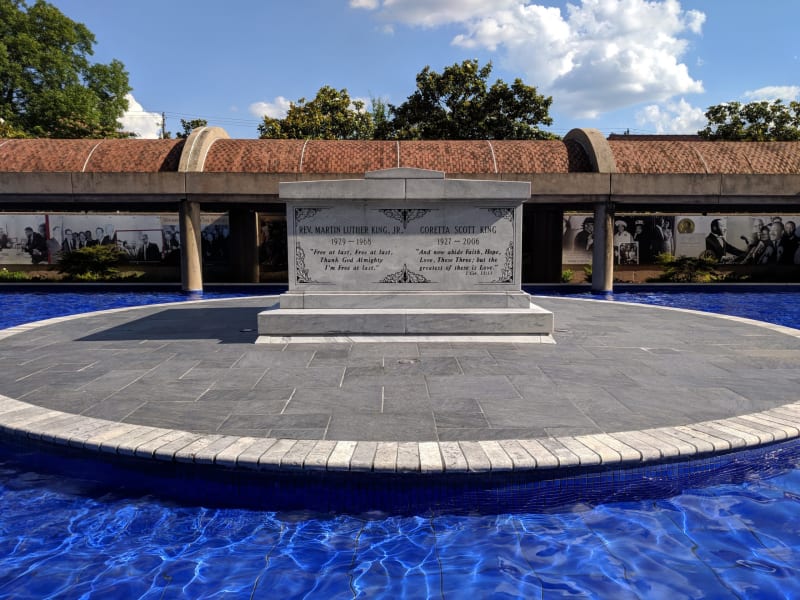
Across the street is The King Center, which houses exhibits on Dr. King as well as the tombs of Dr. King and his wife, Coretta Scott King. A block away is the Martin Luther King Jr. birth home where the National Park Service gives a 30-minute tour every hour (registration is required, post pandemic). Also at the center is the King Library and Archives, the largest repository of primary source materials on Dr. King and the civil rights movement.
Where: 449 Auburn Ave. NE
5. ATLANTA DAILY WORLD
As you continue down the street, you’ll see the signs of businesses, many long gone, that played a vital role in the civil rights movement. Look for the Atlanta Daily World sign. The first black daily newspaper published news that blacks couldn’t get anywhere else at this site from 1928 to 2008. Among the issues the paper regularly covered were lynchings, police brutality, school segregation and racial discrimination in the military.
Where: 145 Auburn Ave.
6. EBENEZER BAPTIST CHURCH
There are several churches on Auburn Avenue that have a place in history, with the most important being Ebenezer Baptist Church where Dr. King, his father and grandfather preached. Dr. King was baptized there and his funeral was held at this historic church. Dr. King’s mother, Alberta Williams King, was murdered as she played the organ during a morning service in 1974.
Where: 407 Auburn Ave. NE
7. BIG BETHEL AME CHURCH
It’s hard to miss the Big Bethel AME Church; just look up and see the “Jesus Saves” sign on the steeple. Big Bethel was founded in 1840 by enslaved members of the white Union Church. It housed the city’s first public school for African-Americans, and, in the basement, Morris Brown College. Big Bethel, the oldest African-American church on the street, hosted a weekly radio broadcast during the ’50s and ’60s. Dr. King appeared at Big Bethel for an NAACP rally shortly after the Montgomery Bus Boycott in 1957.
Where: 220 Auburn Ave.
8. WHEAT STREET BAPTIST CHURCH
The Wheat Street Baptist Church is another with a rich civil rights history. The church’s pastor, William Holmes Borders, was a prominent civil rights activist who worked to desegregate the city’s public transportation system in 1957 and influenced a young Dr. King. His daughter, Lisa Borders, was president of the Atlanta City Council between 2004 and 2010. Part of the movie “Selma” was filmed in the church.
Where: 359 Auburn Ave. NE
9. SOUTHERN CHRISTIAN LEADERSHIP CONFERENCE
The Southern Christian Leadership Conference (SCLC) was founded in the Ebenezer Baptist Church and moved to offices in the Prince Hall Masonic Temple, where many of the movement’s activities were planned, including the March on Washington, the Selma Voting Rights Campaign and the March to Montgomery as well as efforts to desegregate cities such as Albany, Birmingham and St. Augustine.
Where: 320 Auburn Ave. NE
10. PRINCE HALL MASONIC TEMPLE
Many notables served as SCLC president, including Dr. King, Ralph David Abernathy and Joseph Lowery. The Prince Hall Masonic Temple has a history in civil rights that predates the movement. The building was built in 1937 by John Wesley Dobbs and served as the home of WERD, the nation’s first African-American radio station. In 1936 Dobbs, dubbed the “Mayor of Sweet Auburn,” organized black voter registration drives and formed the Atlanta Negro Voters League.
Where: 330 Auburn Ave. NE
11. JOHN WESLEY DOBBS MONUMENT
At Auburn Avenue and Fort Street stands a sculpture of John Wesley Dobbs, the unofficial “mayor” of Auburn Avenue and the person who coined the term “Sweet Auburn.” The statue, “Through his Eyes,” is rather startling as the artist, Ralph Helmick, based it on the 12th-century Nigerian life-sculpture tradition. More than seven feet tall, it is a “portrait mask” of Dobbs’s face looking out to Auburn Avenue, the area he served with civic engagement and constant presence on the street during and after the 1906 race riot.
Where: Intersection of Auburn Avenue and Fort Street
12. MADAM C.J. WALKER MUSEUM
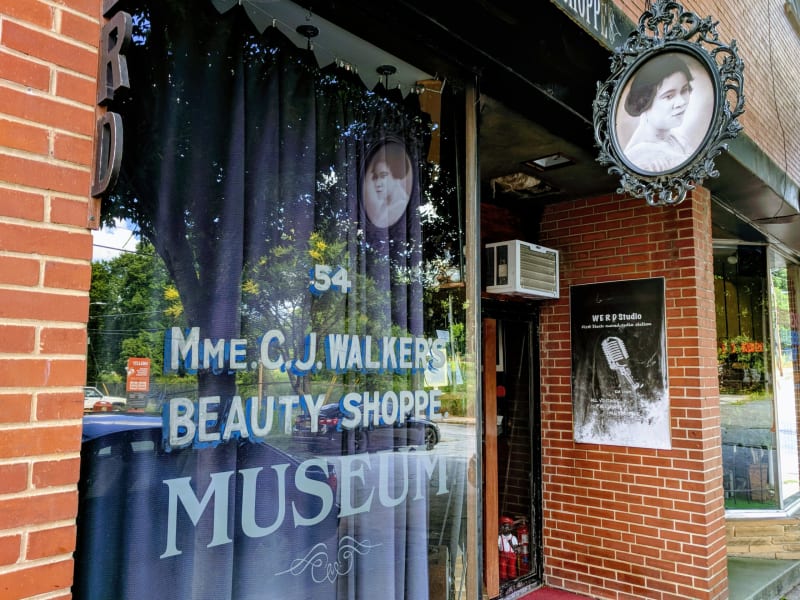
Near Auburn Avenue on Hilliard Street is the Madam C.J. Walker Museum, once one of Walker’s beauty salons. Born Sarah Breedlove, the cosmetics pioneer took the name Madam C.J. Walker after getting married. Known as the country’s first, self-made female millionaire, she earned her wealth by developing beauty products for black women then training more than 20,000 workers and agents to deliver her products and expertise to customers. Octavia Spencer starred in a four-part Netflix series about her. “Self Made: Inspired by the Life of Madam C.J. Walker,” the series was produced by LeBron James’ production company. The Atlanta museum showcases her beauty parlor and also was the home of WERD Studio, the first black-owned radio station.
Where: 54 Hilliard St. NE
13. THE ROYAL PEACOCK
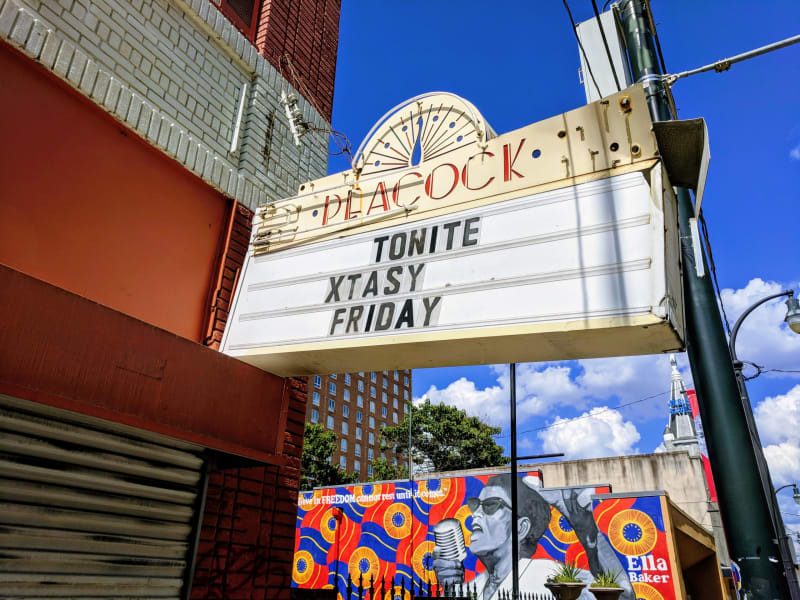
The Royal Peacock at one time was the “in” place-not only for Atlantans and visitors (such as Joe Louis and Muhammad Ali) but also for entertainers including Little Richard, James Brown, Aretha Franklin, Marvin Gaye and Louis Armstrong. Originally opened in 1937 as the Top Hat Club, it was bought by Carrie Cunningham, a former circus performer, who turned the Royal Peacock into one of the top centers for black entertainers in the country. Wednesday and Saturday performances were reserved for whites only. Since, during the Jim Crow era, entertainers couldn’t stay in white hotels, Cunningham opened the Royal Hotel and Restaurant to accommodate them.
Where: 186 1/2 Auburn Ave.
14. MUNICIPAL MARKET
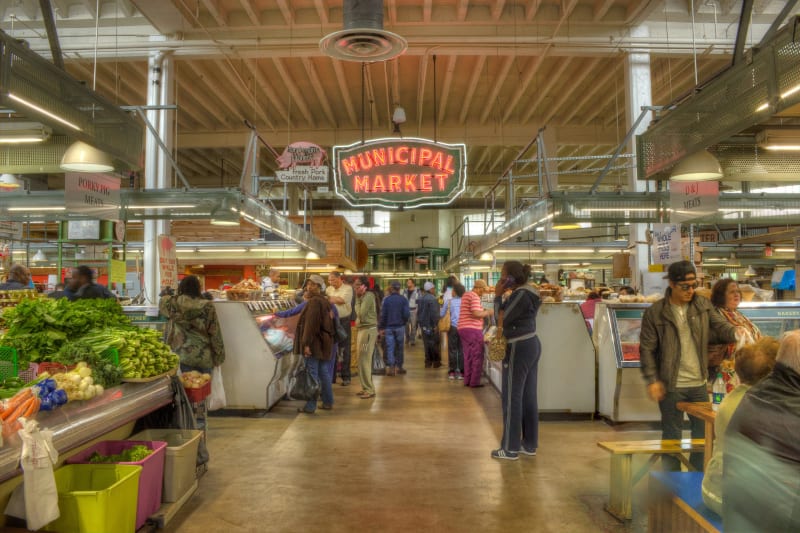
The Municipal Market of Atlanta was established in 1918 after the Great Atlanta fire of 1917. Farmers would bring their livestock and produce to a large tent, which was destroyed in the fire along with nearly 2,000 nearby homes. A year later, the Atlanta Women’s Club launched a fund-raising drive, and in 1925 a fireproof brick structure opened. At the time, blacks were allowed to shop inside the market but could only sell their products on the curb outside. Today, the Sweet Auburn Curb Market features 28 independently owned spaces with retailers who sell sweets, meats and seafood as well as produce.
Where: 209 Edgewood Ave. SE
15. ATLANTA LIFE FINANCIAL GROUP
The Atlanta Life Financial Group is part of the National Park Service’s Martin Luther King Jr. Preservation District. The company, founded in 1905, was once one of the most prominent African-American businesses in the country. It was founded by Alonzo Herndon, a barber and entrepreneur noted for operating elegant barber shops that catered to white Atlanta businessmen, including the Crystal Palace at 66 Peachtree St. Herndon, who became one of the country’s first African-American millionaires, purchased the Atlanta Benevolent and Protective Association (later called Atlanta Mutual) for $140 and expanded it into several states. It was renamed the Atlanta Life Insurance Company in 1922. Its longtime president, Jesse Hill Jr., was the first black president of the Atlanta Chamber of Commerce.
Where: 148 Auburn Ave.; company now located at 191 Peachtree Tower
GETTING TO AUBURN AVENUE
By Car: On-street parking, both paid and free, is available along parts of Auburn Avenue.
Atlanta Streetcar: Stops along several sites along this historic district. See pricing and schedule.
Take a guided tour: Several tour companies provide walking, biking, or driving tours.
Every person should visit this iconic street at least once, not only for the history but also for vibrancy of the street with boutiques, farmers market, clubs and wonderful restaurants.
Discover More
Get to know Atlanta, and discover the best things to do around the city.